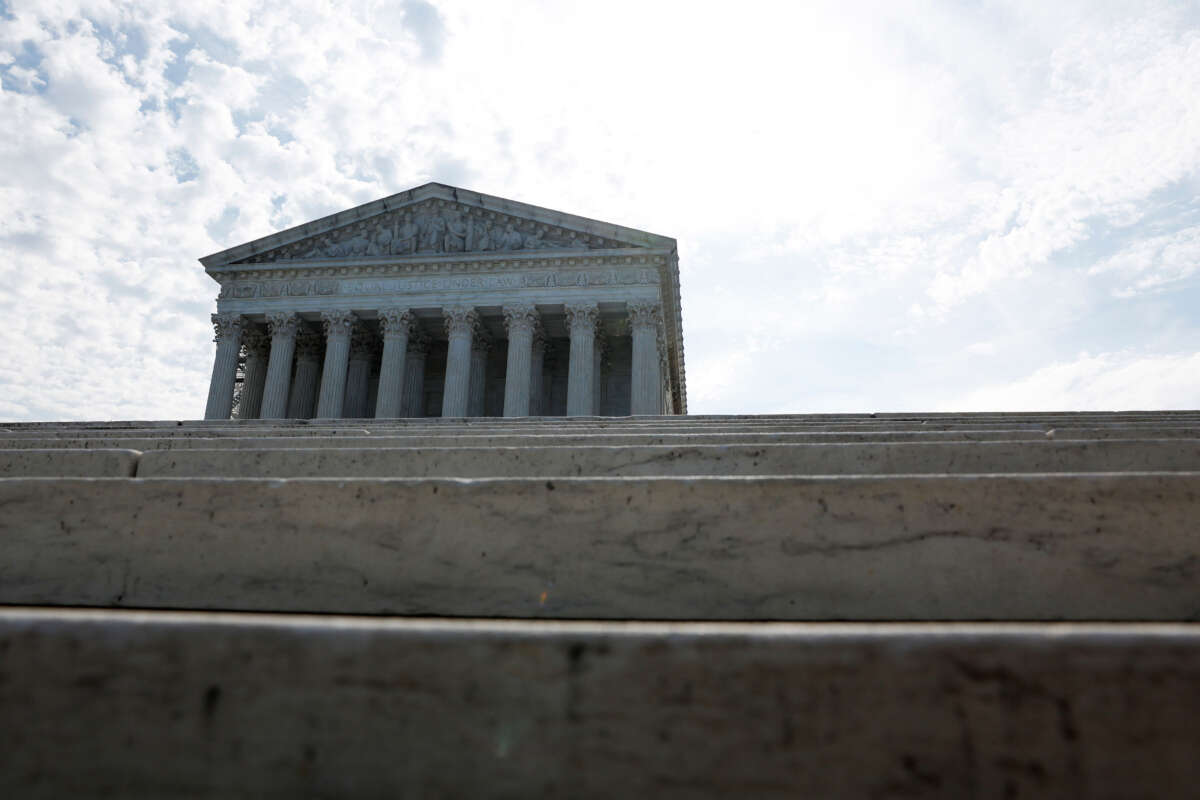On Friday, the U. S. Supreme Court ruled in favor of a Colorado website designer who argued that a state law barring discrimination against LGBTQ people violates her First Amendment speech rights.
The case in question, 303 Creative LLC v. Elenis, examined the complaints of website creator Lorie Smith, who owns a graphic design firm and sued the state over a law called the Colorado Anti-Discrimination Act (CADA). Under that law, businesses providing services to the public cannot discriminate against individuals based on a number of personal traits, including sexual orientation.
Smith claimed that she wanted to start making wedding websites but didn’t want to do so for same-sex couples. The case is unusual in that she hadn’t yet been asked by anyone to design a wedding website, meaning that no actual legal harm took place before her federal lawsuit was filed.
In fact, Smith — who was represented by the Alliance Defending Freedom, an SPLC-recognized hate group that frequently involves itself in cases targeting LGBTQ rights — presented what appears to be a completely fictionalized account of a man and his same-sex partner asking her to create graphics for dinnerware and placeholders for their wedding in 2016. But the man who Smith claimed made the request disputes ever reaching out to her — and recently told reporters that he has been married, with children, to a woman for the past 15 years.
In a ruling authored by Justice Neil Gorsuch, the Court ruled in favor of Smith’s claims, despite her fabricating stories about being harmed by the Colorado law.
“The First Amendment envisions the United States as a rich and complex place where all persons are free to think and speak as they wish, not as the government demands,” Gorsuch wrote in his concluding remarks in the ruling.
In her dissent to the ruling, Justice Sonia Sotomayor blasted the majority for changing precedent.
“Five years ago, this Court recognized the ‘general rule’ that religious and philosophical objections to gay marriage ‘do not allow business owners…[to] deny protected persons equal access to goods and services under a neutral and generally applicable public accommodations law,” Sotomayor wrote.
She added:
Today, the Court, for the first time in its history, grants a business open to the public a constitutional right to refuse to serve members of a protected class.
In trying to defend his position, Gorsuch compared the case to a scenario in which a movie director might be compelled to be part of a film, against their will, that violates their religious principles. But Sotomayor, in her dissenting opinion, blasted that theory, noting that CADA is a “public accommodation law,” which “guarantees to every person the full and equal enjoyment of places of public accommodation without unjust discrimination.”
Such laws have been passed to protect other classes of people against discrimination, Sotomayor noted, including discrimination based on race, color, religion, national origin and disability.
“If a business chooses to profit from the public market, which is established and maintained by the state, the state may require the business to abide by a legal norm of nondiscrimination. In particular, the state may ensure that groups historically marked for second-class status are not denied goods or services on equal terms,” the associate justice wrote.
It is the “legal duty of a business open to the public to serve the public without unjust discrimination,” she added, a concept that is “deeply rooted in our history.”
“The true power of this principle, however, lies in its capacity to evolve, as society comes to understand more forms of unjust discrimination and, hence, to include more persons as full and equal members of ‘the public,'” Sotomayor said.
LGBTQ advocates condemned the Court’s new standard.
“For over 50 years, courts have found time and time again that businesses like 303 Creative have no license to discriminate,” the American Civil Liberties Union wrote on Twitter. “While today’s decision is limited to customized expressive services, it’s wrong, and it’s a direct attack on our civil rights laws.”
“So many people already hold the anxiety of being turned away. From stores. From hotels. From hospitals. It becomes ingrained and shapes the contours of life,” lawyer and trans activist Chase Strangio wrote. “Validating it reinforces the most insidious forces at play in the supremacies that have defined this country.”
“The reckless ruling today in 303 Creative reminds us of the importance of building and leaning on community in moments of immense difficulty,” a press release from Transgender Law Center said. “Today we are in solidarity with our family, chosen family, friends, co-workers, and the vast majority of people in this country who believe all of us deserve dignity and respect. No exceptions.”
Speaking against the authoritarian crackdown
In the midst of a nationwide attack on civil liberties, Truthout urgently needs your help.
Journalism is a critical tool in the fight against Trump and his extremist agenda. The right wing knows this — that’s why they’ve taken over many legacy media publications.
But we won’t let truth be replaced by propaganda. As the Trump administration works to silence dissent, please support nonprofit independent journalism. Truthout is almost entirely funded by individual giving, so a one-time or monthly donation goes a long way. Click below to sustain our work.
